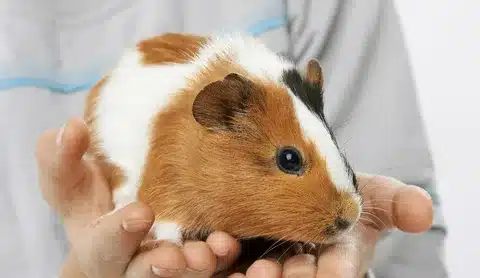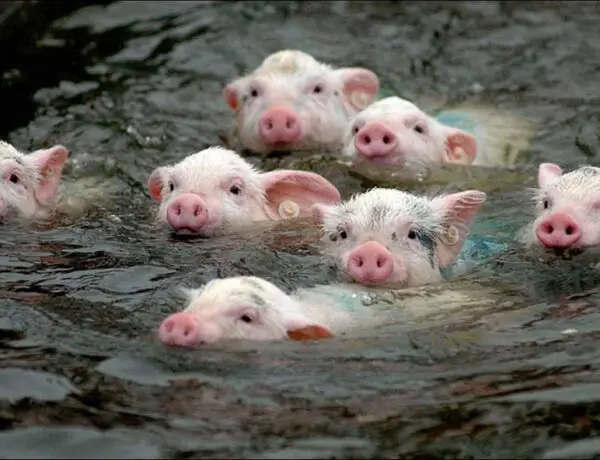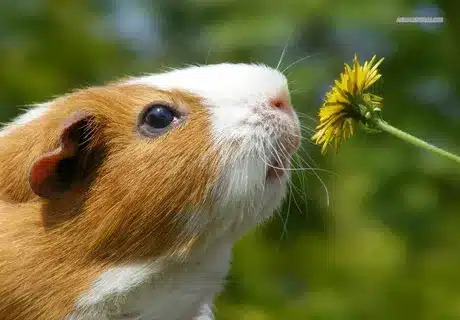Introduction
Does Guinea Pigs Like To Be Held: Understanding guinea pig behavior is essential for providing them with the best care and companionship. Guinea pigs, often chosen as delightful and sociable pets, have unique preferences when it comes to human interaction. A common inquiry among guinea pig owners is whether these small, gentle creatures enjoy being held. To foster a strong bond with your guinea pig and ensure their well-being, it’s important to delve into their behavior and learn about their preferences for handling and physical contact. By gaining insights into how guinea pigs perceive being held, you can provide them with the comfort and companionship they need for a happy and fulfilling life as your cherished pet.
Guinea pigs, also known as cavies, are endearing and social animals that often form strong bonds with their human caregivers. Understanding their preferences for physical contact, particularly being held, is crucial to providing them with a positive and enriching living environment. Guinea pigs are known for their individual personalities, and their comfort with being held can vary from one guinea pig to another.
We’ll explore the factors that influence a guinea pig’s response to being held, the signs of their comfort or discomfort, and tips for handling them gently and responsibly. By learning about their unique needs and behaviors, you can build a trusting and affectionate relationship with your guinea pig and ensure their well-being and happiness as cherished members of your family.

Do guinea pigs not like being picked up?
Some of them never like to be picked up or held by humans and always prefer “hands-off” guardianship, although this largely depends on their personality.
Guinea Pig Behavior: Picking Up and Their Preferences
Guinea pigs, beloved for their charming and sociable nature, can sometimes exhibit reluctance or discomfort when being picked up. Understanding their behavior and preferences in this regard is essential for responsible guinea pig care.
Individual Variability
Like humans, guinea pigs have unique personalities, and their reactions to being picked up can vary significantly from one individual to another. Some guinea pigs may readily tolerate and even enjoy being held, while others may be more apprehensive or anxious.
Natural Instincts
Guinea pigs have a natural prey instinct, and being lifted off the ground can trigger feelings of vulnerability. This instinctual response can make them cautious when approached for picking up.
Trust and Training
Building trust is essential when handling guinea pigs. Patient, gentle, and consistent interactions can help them become more comfortable with being picked up over time. It’s crucial to respect their boundaries and avoid forcing them into situations they find distressing.
Communication and Cues
Guinea pigs communicate their feelings through body language and vocalizations. Paying attention to their cues is vital; signs of discomfort may include teeth chattering, squeaking, or struggling.
How long can you hold a guinea pig?
It is recommended to hold your pet for maximum of 10-15 minutes at a time, as it naturally needs to go to the bathroom: If held for too long, your pet will let you know if it wants to get back to its home (it becomes restless, starts whining and nibbling your clothes) It is normal for a guinea pig to poop on you.
Duration of Guinea Pig Holding: Understanding Their Limits
Holding a guinea pig can be a delightful and bonding experience for both the owner and the pet. However, it’s important to consider the duration of these holding sessions to ensure the well-being and comfort of your furry companion.
Individual Tolerance
The length of time you can hold a guinea pig varies from one individual to another. Some guinea pigs may enjoy longer holding sessions, while others may become anxious or uncomfortable after a shorter period.
Start with Short Sessions
For beginners or guinea pigs that are not accustomed to being held, it’s advisable to start with short holding sessions, perhaps just a few minutes at a time. As your guinea pig becomes more accustomed to the experience, you can gradually extend the duration of these sessions.
Cues and Comfort
Pay close attention to your guinea pig’s body language and cues. If they start displaying signs of stress or discomfort, such as restlessness, teeth chattering, or attempting to escape, it’s essential to respect their limits and gently return them to their enclosure.
Daily Interactions
While the duration of each holding session can vary, it’s generally recommended to interact with your guinea pig daily, even if it’s just for brief periods. This helps build trust and a positive bond between you and your pet.
Why do guinea pigs try to bite?
As already mentioned, guinea pigs are not usually aggressive, but they will bite if they feel threatened, bullied, mishandled or are ill. Of course, all piggies are different, and while one guinea pig might like being cuddled, another won’t.
Understanding Guinea Pig Behavior: Biting Tendencies
Guinea pigs are generally known for their gentle and sociable nature, making them popular pets for families and individuals. However, there may be instances when a guinea pig exhibits biting behavior. Understanding why guinea pigs may try to bite is essential for responsible guinea pig care.
Fear or Stress
Guinea pigs are prey animals by nature, and when they feel threatened or stressed, they may resort to biting as a defensive mechanism. Sudden or forceful handling, loud noises, or unfamiliar environments can trigger fear in guinea pigs.
Pain or Discomfort
If a guinea pig is in pain or discomfort due to an injury, illness, or even a skin condition, they may bite when touched in the affected area as a way to communicate their distress.
Territorial Aggression
Guinea pigs can be territorial creatures, especially among males. Biting may occur when one guinea pig perceives another as a threat to its territory or dominance.
Social Hierarchies
In groups of guinea pigs, there may be instances of nipping or gentle biting as they establish and maintain social hierarchies within the group.
Misinterpretation of Food
Guinea pigs can sometimes mistake fingers for food, especially if they associate the smell of food with your hand.
Can guinea pigs be left alone for 3 days?
How Long Can You Leave a Guinea Pig Alone? A guinea pig on its own is at risk of dehydration, starvation, injury, illness and loneliness, which is why it needs constant care and attention. Although some websites suggest that you can leave a cavy alone for a maximum of 24 hours, we recommend no more than 12.
Leaving Guinea Pigs Alone: Considerations for Short Absences
Leaving your guinea pigs alone for an extended period, such as three days, requires careful planning and consideration of their needs. Guinea pigs are social and dependent animals that thrive on daily care and interaction.
Food and Water
Guinea pigs require a constant supply of fresh food and water. Leaving them for three days without proper sustenance can lead to health issues. You must ensure they have an adequate amount of hay, fresh vegetables, and a full water bottle before your departure.
Cleanliness
Cleanliness is crucial for guinea pig enclosures. Failing to maintain a clean environment can lead to hygiene-related problems. Consider cleaning their cage thoroughly before leaving to ensure their living space is fresh.
Social Interaction
Guinea pigs are social animals and benefit from daily interaction. If left alone for an extended period, they may become stressed or lonely. Enlist a friend or pet sitter to visit them, provide food and fresh water, and engage with them socially during your absence.
Health Considerations
Before leaving, ensure your guinea pigs are in good health. Sickness or injury can worsen if not addressed promptly. Have a plan for veterinary care in case of emergencies.
Do guinea pigs give kisses?
Kissing. Even though most people would consider licking to be the animal equivalent of kissing, guinea pigs actually give kisses a lot like a human! It’s not quite nibbling, because they don’t use their teeth. Instead, they gently and repeatedly nip you with their lips for just a moment.
Guinea Pig Behavior: Expressing Affection
Guinea pigs are beloved for their sweet and endearing behaviors, but do they give kisses like humans? Understanding guinea pig behavior and their unique ways of expressing affection is essential for guinea pig owners.
Nose Nudging
Guinea pigs often show affection through gentle nose nudging or nuzzling. This behavior is a way for them to explore their surroundings and interact with their human caregivers. While it may resemble a kiss, it’s more about curiosity and social interaction.
Purring and Cooing
Some guinea pigs make purring or cooing sounds when they are content and relaxed. This vocalization can be seen as a form of affection and may accompany gentle nose nudges.
Trust and Bonding
Guinea pigs may become more comfortable with human handling and interaction over time, especially if they have a trusting and loving relationship with their caregivers. They may become more relaxed and show their affection through physical contact.
Individual Variability
Guinea pig has its own personality, and their expression of affection can vary. Some may be more outgoing and prone to physical interactions, while others may be more reserved.
Do guinea pigs recognize their owners?
Yes! Guinea pigs are smart creatures that are easy to develop a bond with. A guinea pig will recognise their owner as the caregiver who gives them food and love. A sure sign a guinea pig recognises you is that they feel safe around you.
Guinea Pigs and Recognition: Building Bonds with Owners
Guinea pigs are known for their sociable and affectionate nature, and they can indeed recognize their owners, albeit in their own unique way. Here’s a closer look at how guinea pigs perceive and respond to their human caregivers.
Senses of Smell and Sound
Guinea pigs have a keen sense of smell and hearing. They can recognize their owners by scent and the sound of their voices. Over time, they become familiar with their owner’s scent, associating it with positive experiences like feeding and gentle handling.
Routine and Interaction
Guinea pigs are creatures of habit. They quickly learn to recognize their owners based on the daily routines and interactions they share. For example, they may associate their owner with feeding times or the comforting sound of their voice during gentle handling.
Visual Recognition
While guinea pigs have relatively poor eyesight, they can still distinguish between familiar and unfamiliar faces, especially those they interact with regularly. They may not recognize you solely by sight from a distance but are more likely to do so up close.
Social Bonds
Guinea pigs form strong social bonds with their human caregivers. They can become more comfortable and affectionate with those they trust and interact with regularly.
What Color calms guinea pigs?
So “visual stimulation” — the excitement one might feel when viewing the color red, and the calm they may feel with blue — can possibly help your guinea pig stay interested and active in their home environments.
Color Perception in Guinea Pigs
Guinea pigs, with their limited color vision, perceive the world differently from humans. While there isn’t a specific color that universally calms guinea pigs, understanding their color perception can help create a comfortable and stress-free environment for them.
Limited Color Vision
Guinea pigs are believed to have dichromatic vision, which means they primarily see colors in shades of blue and green. They are thought to have difficulty perceiving red and may see it as a shade of gray.
Neutrals and Earth Tones
To create a calming environment for guinea pigs, many owners opt for neutral and earthy colors like greens, blues, and browns. These colors are likely within the range of hues that guinea pigs can perceive more clearly and comfortably.
Avoiding Bright or Harsh Colors
While guinea pigs don’t necessarily react negatively to bright or harsh colors, they may prefer softer and more natural tones. Vibrant or intense colors could potentially startle or stress them.
Individual Preferences
Just like humans, individual guinea pigs may have their own color preferences or aversions. Paying attention to their behavior and comfort level in response to different colors can help determine what colors they may find calming.
How do guinea pigs see humans?
This means they can see in front of them, above them, and to the side of them, all without moving their head! That being said, guinea pigs have poor depth perception and can’t see over 3 to 5 feet ahead of them, and they can’t make out fine details.
Guinea Pig Vision: Understanding Their Perspective on Humans
Guinea pigs have unique vision capabilities that differ from humans. To understand how they see humans, it’s essential to consider their visual perception, which plays a significant role in their interactions with us.
Dichromatic Vision
Guinea pigs are believed to have dichromatic vision, meaning they primarily see in two color spectrums: blue and green. They lack the ability to perceive reds or intense colors. This limited color vision affects how they perceive humans and their surroundings.
Blurry Vision
Guinea pigs have relatively poor visual acuity. They see the world in a somewhat blurry or fuzzy manner, which means they may not discern fine details or sharp outlines. As a result, their perception of human features may not be as precise as ours.
Shape Recognition
Despite their limited visual acuity, guinea pigs can recognize and differentiate between shapes. They can likely distinguish between a human figure and other objects in their environment.
Movement Detection
Guinea pigs have a keen sense of motion detection. They are quick to notice movement and can track the movement of humans or other animals in their vicinity.

Conclusion
Whether a guinea pig enjoys being held largely depends on their individual personality and previous experiences with handling. Some guinea pigs may readily tolerate and even enjoy being held, while others may be more reserved or cautious. It’s crucial for guinea pig owners to be attentive to their pets’ cues and preferences.
Building a positive relationship with your guinea pig involves patience, gentle handling, and respect for their comfort levels. Start with short holding sessions, gradually increasing the duration as your guinea pig becomes more accustomed to being held. Always support their body and ensure they feel secure to minimize stress.
By understanding your guinea pig’s unique temperament and providing them with a safe and loving environment, you can foster a bond built on trust and companionship. Remember that each guinea pig is an individual with their own preferences, and it’s essential to respect their boundaries while offering them the care and attention they need for a happy and fulfilling life as a beloved pet.





No Comments